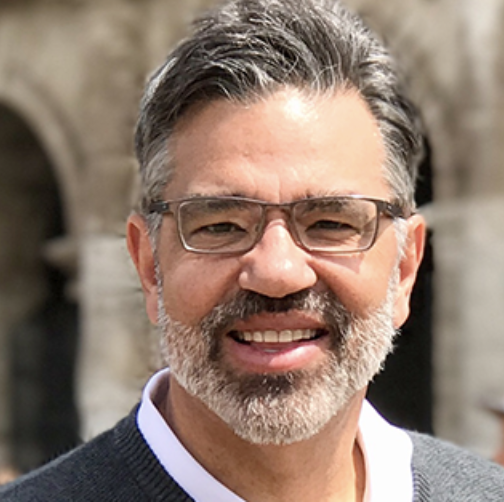What is the ministry challenge keeping you up at night?
How to fund worthy, necessary, and aspirational goals for the long term effectiveness and sustainability of the organizations I lead.
What is the greatest hope for God’s work in 2023 you’re dreaming about?
Improving and sustaining my own mental and physical health via a healthy work/life balance. Every hope that I have for effectiveness in the work of God to which I've been called depends upon this, i.e., my own health and well-being.
What is a non-ministry activity that brings you joy and energy?
Hiking up mountains:-)
What are the top 1-3 essentials for the Church in America to address to reach those who are spiritually open, but not yet following Jesus?
1. It is essential for local churches to get beyond homogeneity and become multiethnic/economically diverse expressions of God's love for all people, not just some people, in order to advance a credible Gospel.
In the 20th century, pastors were taught that New Testament churches were segregated along racial and cultural lines, and to plant, grow, and develop churches focused on a specific people group (demographic). However, in 1978, Dr. Martin E. Marty challenged this notion by asking, “Is the Homogeneous Unit Principle Christian?” In response the progenitor of the principle, Donald McGavran, wrote to Marty, “Do I beg of you, think of primarily as a missionary and evangelistic principle,” going on to add, “There is danger, of course, that congregations (misapplying the Homogeneous Unit Principle) become exclusive, arrogant, and racist. That danger must be resolutely combated.”
2. It is essential for local churches to get beyond explanation to demonstration in order to advance a credible Gospel.
In the 20th century, the way people were drawn to the church, and ultimately to Christ, was through a clear explanation of the Gospel. Yet in the 21st century, people are not so much drawn to Christ by explanation but by demonstration: Not so much to what Christians say but to what we do and how we live both individually and collectively via the local church. Think about it. In Matthew 5:16, Jesus did not say let people hear your good words. Rather, He said “Your light must shine before people in such a way that they may see your good works and glorify your Father who is in heaven.” To reach the Nones, Dones, and others far away from Jesus, we should recognize this is a Matthew 5:16 century.
3. It is essential for local churches to get beyond tithes and offerings by creating multiple streams of income not only to survive but to thrive and with sustainability in mind.
Most households today to have two or more income streams. As households have gone, so too is going the local church. Tithes and offerings alone, then—as if one paycheck in the collective church household—are no longer enough to fully fund, grow, or sustain effective ministry in an increasing number of congregations. Among other reasons, generational shifts in attitudes and approaches to giving coupled with income inequality and wealth gaps among the changing demographic of American society means churches going forward, in order to advance bold mission and vision, must learn to leverage their assets to create multiple streams of income beyond tithes and offerings.
